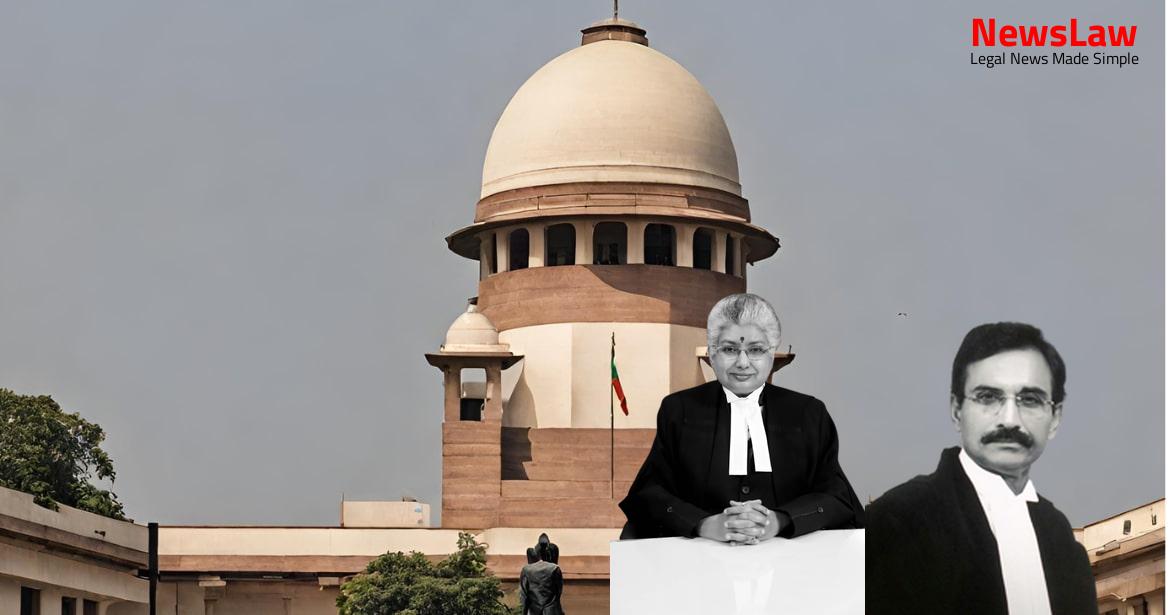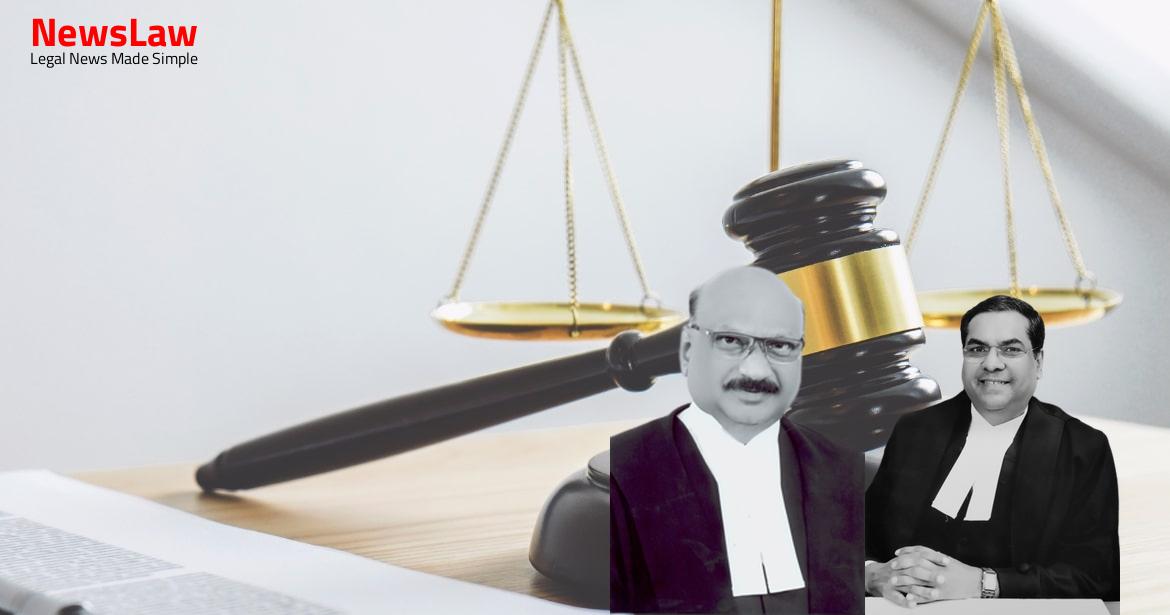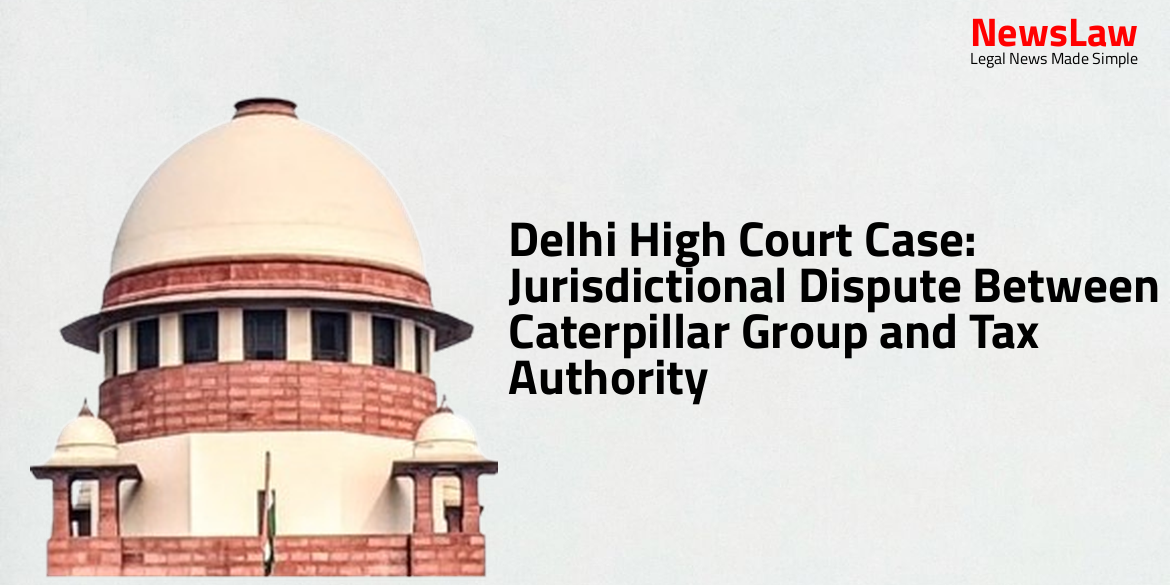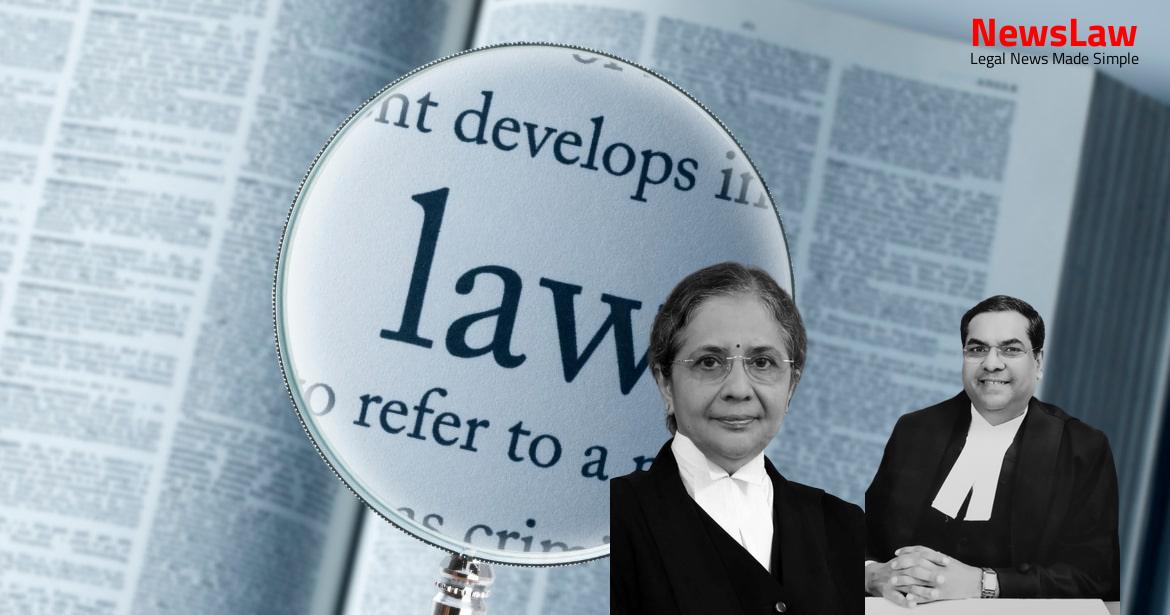Delve into the detailed legal analysis undertaken by the court regarding authorization and limitation in filing a Section 7 application. The case sheds light on the significance of adhering to specific procedural requirements and the implications of demonstrating default within the prescribed time frame. Stay informed about the complexities of legal proceedings in the realm of insolvency and bankruptcy law.
Facts
- Financial Creditor filed application under Section 19 of the Recovery of Debts Due to Banks and Financial Institutions Act, 1993 for recovery of dues.
- Corporate Debtor contended that Section 7 application was legally untenable as proceedings before Debt Recovery Tribunal were pending.
- NCLAT dismissed appeal of Corporate Debtor citing admitted payment of Rs. 16.17 lakh during 2019-20.
- Financial Creditor sanctioned and cleared a loan of Rs. 4.5 crore to the Corporate Debtor in 2012.
- Financial Creditor filed application under Section 7 of the Insolvency and Bankruptcy Code in 2019 for Rs. 24.62 crore dues.
- Corporate Debtor’s account declared NPA on 30.09.2014 with recovery notice issued on 01.10.2014.
- Adjudicating Authority held Section 7 application was not time-barred based on evidence of transactions and acknowledgments.
- Another loan of Rs. 3.5 crore granted by Financial Creditor was repaid in 2018.
- Appeal by Corporate Debtor was rejected by NCLAT, leading to the current Appeal.
Also Read: Legal Analysis on Seniority Fixation in Contempt Petitions
Arguments
- The application filed under Section 7 of the Code was based on a power of attorney.
- The Corporate Debtor argued that the application was barred by limitation as it was not filed within three years from the date of default.
- The power of attorney was granted before the Code came into force without specific authorization to initiate proceedings under the Code.
- NCLAT found the application maintainable and within the prescribed time.
- The objection on maintainability by the Corporate Debtor was deemed untenable.
- The Corporate Debtor could not demonstrate any error in the order of the Adjudicating Authority.
- Payments made by the Corporate Debtor to the Bank after the account was declared NPA could not extend the period of limitation.
- Reference made to a judgment where it was held that an ‘authorized person’ and not a ‘power of attorney holder’ can file an application under Section 7.
- It was argued that the defect in filing by an unauthorized person is not curable, and even if curable, the Financial Creditor failed to rectify within the stipulated time under Section 7 (5) despite an order granting time by the Adjudicating Authority.
- The Financial Creditor’s Counsel argued that no error was committed by the Adjudicating Authority in admitting the application under Section 7 of the Code.
- It was contended that the application should have been rejected at the outset due to the absence of pleading or proof regarding the filing within limitation.
- Reference was made to the judgment in Palogix Infrastructure and the argument was put forth that a person authorized by power of attorney can file an application under Section 7 of the Code.
- Only a debit balance confirmation letter dated 07.04.2016 was provided with the application, without any other document extending the period of limitation.
- The Financial Creditor failed to demonstrate that the application was filed within the limitation period, as no additional information was provided.
- The balance sheet cited in the application was for the financial year 2015-2016, which does not impact the limitation period.
- The contention of the Financial Creditor regarding the power of attorney executed in favor of Mr. Praveen Kumar Gupta was upheld, indicating that the application was filed by the authorized person.
Also Read: Judicial Review of Selection Process for DGP Appointment
Analysis
- Adjudicating Authority must ascertain the existence of default within 14 days based on evidence furnished
- Non-furnishing of information by financial creditor at the time of application filing may not lead to dismissal
- Opportunity can be given to provide additional information for satisfaction of Adjudicating Authority
- Responsibility of financial creditor to provide debt particulars and default date at the time of application filing
- Application under Section 7 can be admitted only if default is proven
- Consideration of limitation period in application filing crucial, even in absence of initial plea by creditor
- Authorisation of representative through power of attorney considered valid for filing application
- Acknowledgment of debt can impact limitation period for application filing
- Application may be entertained within extended limitation period if debt acknowledgment is within initial three years from default date
- Close scrutiny of application required by Adjudicating Authority for limitation assessment
- Financial creditor must furnish record of default along with the application
- Application must be made in prescribed form and manner
- Application must be accompanied by specified fee
- Rule 4 of the 2016 Rules requires application in Form 1 with necessary documents and records
- Acknowledgement of liability can result in fresh period of limitation
- Financial creditor was given an opportunity to amend its pleadings before the NCLAT upon payment of costs.
- General authorization by a Financial Creditor in favor of its officers does not require the use of the term ‘Power of Attorney’ to delegate authority, it can be done by designation.
- Court emphasized the specific pleadings and documents required for making an application under Section 7 of the Code.
- Section 18 of the Limitation Act and related principles were held not applicable based on the Babulal Vardharji Gurjar case.
- The NCLAT ruled that a ‘power of attorney holder’ is not permitted to file an application under Section 7 on behalf of the financial creditor as only specific form details are allowed.
- Financial creditor must demonstrate default with respect to a debt that is not time-barred while filing under Section 7.
- If documents acknowledging debt beyond a certain date are not provided by the Corporate Debtor, the application may be dismissed.
- Failure of the Financial Creditor to raise Section 18 of the Limitation Act in the application cannot help the Appellants in this case.
Also Read: Legal Analysis on Ownership of Jewelry in Arbitration Case
Decision
- The Appeal is dismissed
Case Title: RAJENDRA NAROTTAMDAS SHETH Vs. CHANDRA PRAKASH JAIN (2021 INSC 579)
Case Number: C.A. No.-004222 / 2020



